Description
ABSTRACT
Arbitration in Nigeria – A Review of Law and Practice
David Ike
This paper attempts an analytical trajectory of arbitration in Nigerian jurisprudence. It discusses the practice of arbitration and proffer ideas on how to encourage parties to dispute to have more confidence in this hugely important area of Alternative Dispute Resolution.
INTRODUCTION
Nigeria is one country that has never had any issues in its embrace of commercial arbitration and the Alternative Dispute Resolutions as far better means of dispute resolution than litigation. Nigerians have always had a fair and vigorous recourse to arbitration and the ADRs in one form or the other.1 In the traditional societies that preceded the Nigerian state, customary law arbitration and ADRs were much more in use than customary litigation. Then, as now, arbitration and the ADRs were generally conciliatory by aiming at the preservation of existing relationships instead of the mere declaration of rights and liabilities that might not necessarily achieve effective and enduring justice.2 Arbitration and the ADRs were therefore more in agreement with the African philosophy of each person being his brother’s keeper, than litigation which was confrontational even in the traditional society.
The English law of arbitration was introduced into Nigeria early in the life of the country then as a colony of Britain. Even though the imperial government concentrated on litigation as a favoured means of settling disputes in the colony of Nigeria and, even if unwittingly, hampered the growth of the law and practice of the English (Western) type of arbitration and the ADRs, customary law arbitration was in marvelous prosperity. After its independence from Britain in 1960, Nigeria took firm and excellent steps at the earliest opportunities it got in 1965 and 1967 to facilitate the growth of the law and practice of international arbitration within and outside her borders.3 It was the first country to accede to the International Centre for Settlement of Investment Disputes Convention in 1965, quickly following that up with the enactment of the ICSID (Enforcement of Awards) Act,4 in 1967. Ever since, it has normally modernised and updated its laws and striven in other ways to make itself a conducive place for arbitration. In fact, the law of arbitration has grown in content and quality over the years even in the midst of daunting infrastructural limitations.
This article explores the development of the trade in the country in the light of certain usual developmental signposts in arbitration. It first examines the historical development of the law of arbitration in the country with a view to showing the existing plurality of the laws of arbitration (different jurisprudences within a jurisdiction),5 and how each stream of jurisprudence has aided the other and the ordinary Nigerian’s life and business. That discussion also covers the present trends in customary law arbitration and ADRs. The next section examines the practical benefits of arbitration and the ADRs – customary or Western style – in the Nigerian market place of endeavours. It then treats the enforcement of awards and the impact of recent economic developments. As these issues are broken into subtopics and treated, the strengths and weaknesses of the UNCITRAL Model Law
* Lecturer, Faculty of Law, Imo State University, Owerri
- Rufai M.A., ‘Alternative Dispute Resolution’ (Compendium of the 2002-2003 Workshops in the Alpha Juris Workshop Series, Portharcourt, Juriscope Press 2005) 95
- ibid
- E. Cohn, M. Domke, & F. Eisemann , Handbook of Institutional Arbitration in International Trade (Sloane Press 2001)
- Cap. 120 Laws of the Federation of Nigeria (LFN) 2004; Cap. 189 LFN 1990
- Andrew I. Chukwuemerie ‘The Recent Odyssey of Customary Law Arbitration and Conciliation in Nigeria’s Apex Courts’ (1998) 5 Abia State University Law Journal

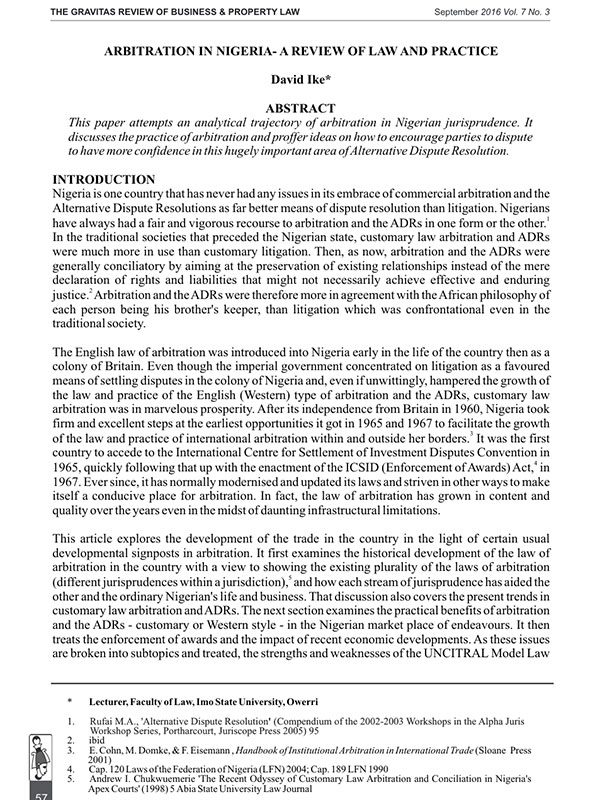
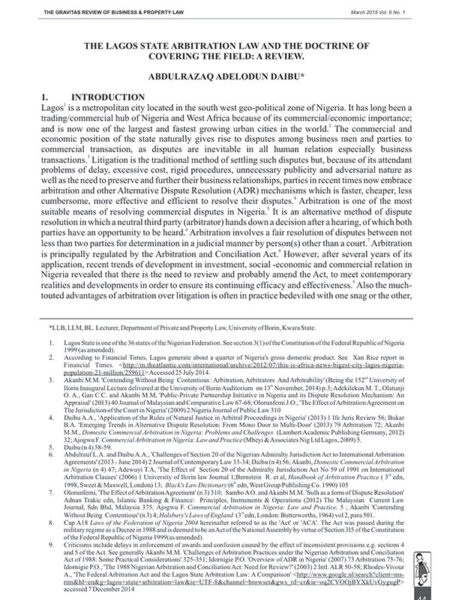
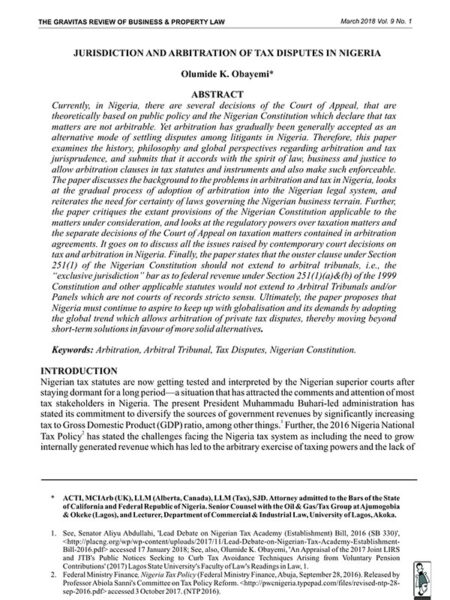
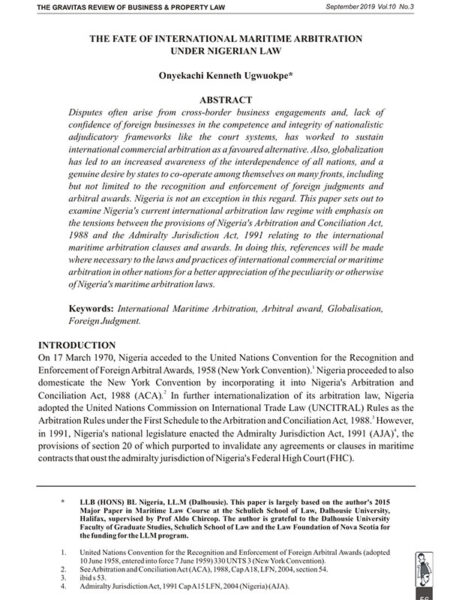
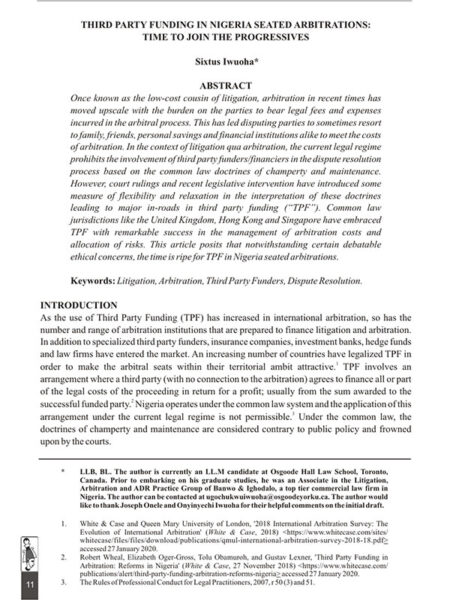


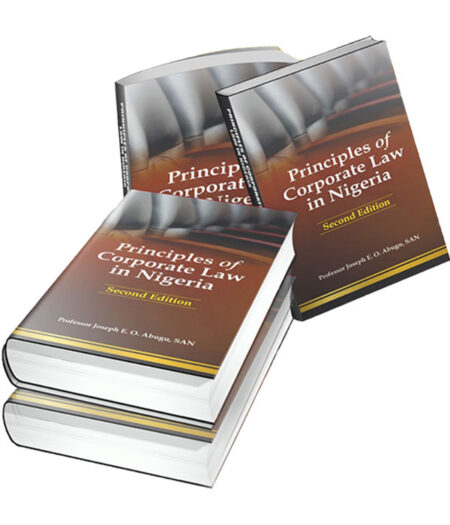
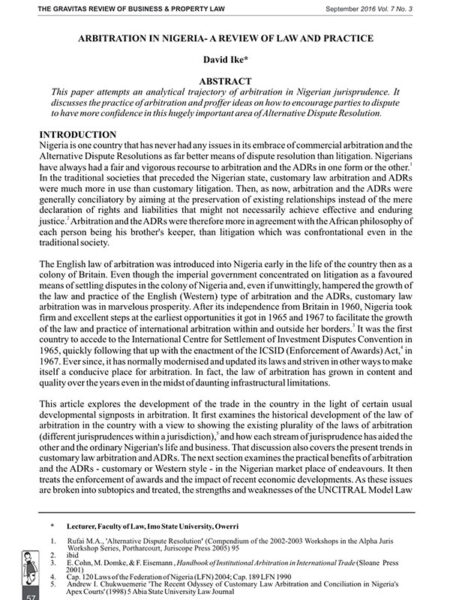
Reviews
There are no reviews yet.